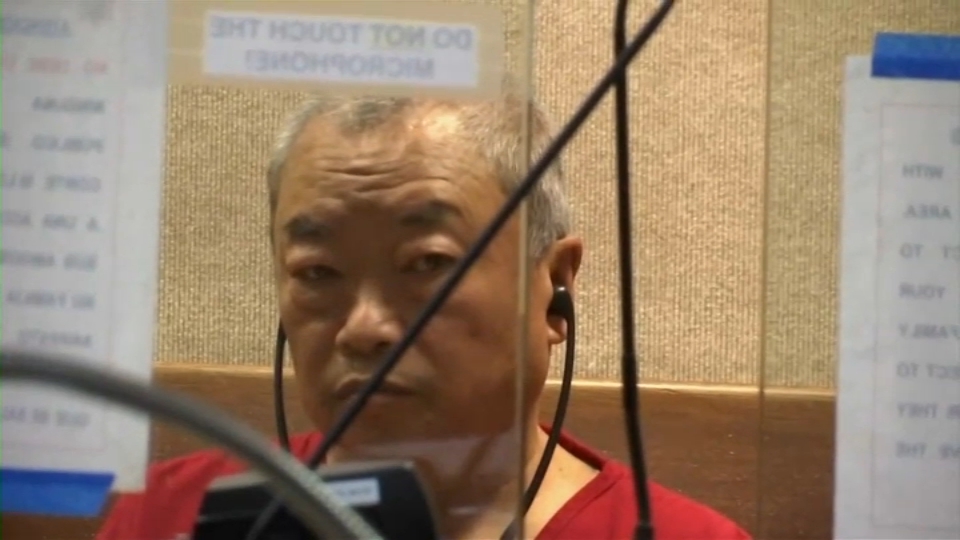Meerenai Shim was a flutist with a dilemma.
She had all but exhausted performing available pieces for flute and cello -- a favored duet of hers -- and commissioning a new work could take years.
"Usually you need a big nonprofit to get something composed," said 34-year-old Shim, of Campbell. "It's not a bad way to go. It just takes a long time."
To speed up the process, Shim posted on Twitter, a San Francisco-based social networking service she'd already been using to reach out to friends and colleagues in the music industry.
"Every composer should write a piece for flute and cello. It's such a versatile combo and we can play it anywhere," Shim tweeted in April last year.
It didn't take long for someone to answer her plea. Daniel Felsenfeld, a Brooklyn-based composer who began following Shim on Twitter earlier that month, offered to write the music. But he came with a price, and teaching private lessons out of her house in Campbell wasn't going to pay the bill.
The pair turned to New York-based Kickstarter, an online company founded in 2009 on the premise of bringing together friends and strangers to pool small chunks of money for larger projects.
Local
Together, Shim and Felsenfeld amassed a little more than $5,200 by the end of their six-week campaign, which concluded on Jan. 18. One hundred and thirty people donated to the new piece, including several complete strangers.
"Thank you Dale Abersold, my 88th backer. Whoever you are, you are awesome," Shim tweeted on Jan. 10, eight days before the campaign ended.
But a surprising number of donors were people Shim already knew, she said.
"Many were friends, family and people I knew from the Internet," she said. "Others were flutists who thought they might want a piece for flute and cello as well."
Kickstarter, among other new projects, represents a novel method for starving artists to quickly raise funds beyond begging for cash on a personal website. In addition to asking for money, performers like Shim are able to offer tiered incentives for each level of donation.
For $5, a donor got an MP3 of the new piece. Ten dollars awarded someone an "I Heart New Music" bumper sticker. Fifteen got Shim's new flute CD and a shout-out on her personal website. Near the top of the list -- a $250 donation -- a patron of the arts could enjoy lunch and a private concert with a friend at Shim's house.
"It seemed I had pretty good control of how much I could ask for and how much people were willing to give," she said.
If Shim had gone the traditional route, "I'd have to write lots of grant proposals, and then I'd have to wait to hear back," she said. "It just seemed like a long and daunting process."
For other artists, the Internet has proven to be a new way of bringing together musicians who may otherwise have never met.
The YouTube Symphony, an ensemble that started in 2008 and is now on its second tour, bills itself as the first-ever orchestra formed strictly through online means.
The symphony is organized through a contest on the video-sharing website youtube.com, where hopefuls worldwide submit audition videos, and viewers vote for performances they like best.
"It's a great opportunity to meet performers from around the world," said Omar Shelly, a winner who studies viola at the San Francisco Conservatory of Music.
Contest winners hail from 30 countries, including China, Singapore, Turkey, Italy, and Brazil. Five winners this year were from the Bay Area.
"I spammed my friends on Twitter and Facebook to vote for me," said Leyan Lo, a Menlo Park amateur violinist who recently graduated from Stanford with a master's degree in physics.
Lo, an experienced YouTube user, said the Internet has proven itself valuable to keeping his family connected to his music.
"My grandma's never been able to attend my concerts because she's so fragile," he said. "Being able to take the concerts to her has meant a lot."
Other winners found the experience a jarring shift from the typical audition process.
"Normally, you make an audition tape. Parts of it you like, parts of it you don't," said contest winner Anna Wittstruck, who studies musicology at Stanford and plays cello in her free time.
"With YouTube, it wasn't over when I finished the recording," she said. "All of a sudden, it was on the Internet and anyone could see it. It was terrifying and humiliating."
Wittstruck, who had never uploaded a video before, said the experience was also exciting and got her thinking about other ways to incorporate the Internet into her career.
But the Web isn't perfect. None of the musicians who won the YouTube contest are getting paid for the time they spend at the event.
The company will front the money to fly its 90 winners to Australia in late March. They will network at a few promotional events, perform in the Sydney Opera House on the 20th, and then fly home.
For some, it's back to their lives of pursuing graduate degrees. Others, like Lo, are still in between jobs.
"The music industry is really tough right now," said Shelly, who plans to audition for Julliard if his career fails to take off when he's done with the San Francisco Conservatory.
"Your options are to start a chamber music group, where it's hard to book gigs, or you can try out for symphonies, but it's really competitive," he said.
Shim will also not profit financially from her fundraising efforts. She has to pay Felsenfeld to compose the piece and mail prizes to more than 100 donors.
Then there's Kickstarter itself, whose organizers demand a 5 percent commission for using their campaign tool. Another 5 percent will go to retailer website Amazon.com, which processes payments to her cause, Shim said.
She said doesn't plan to organize a new campaign right away.
"I'm really glad I was able to build up so much goodwill for the past few years, but I don't want to exhaust my collection of friends and colleagues," she said.
No one is walking away empty-handed, though. The YouTube contest winners get to play in one of the world's most renowned concert halls, and Shim gets a new piece of music for her collection, which will be performed later this year at the Trinity Chamber Concerts festival in Berkeley.
"I've been a concertgoer of that series before," she said. "I get paid a little from it, but it's not big money."
Shim said the real rewards of her career have never been in the paycheck.
"I would love to produce more music," she said. "I don't think any artist goes into this thinking, 'Oh, I'm going to do this so I can make money.'"



